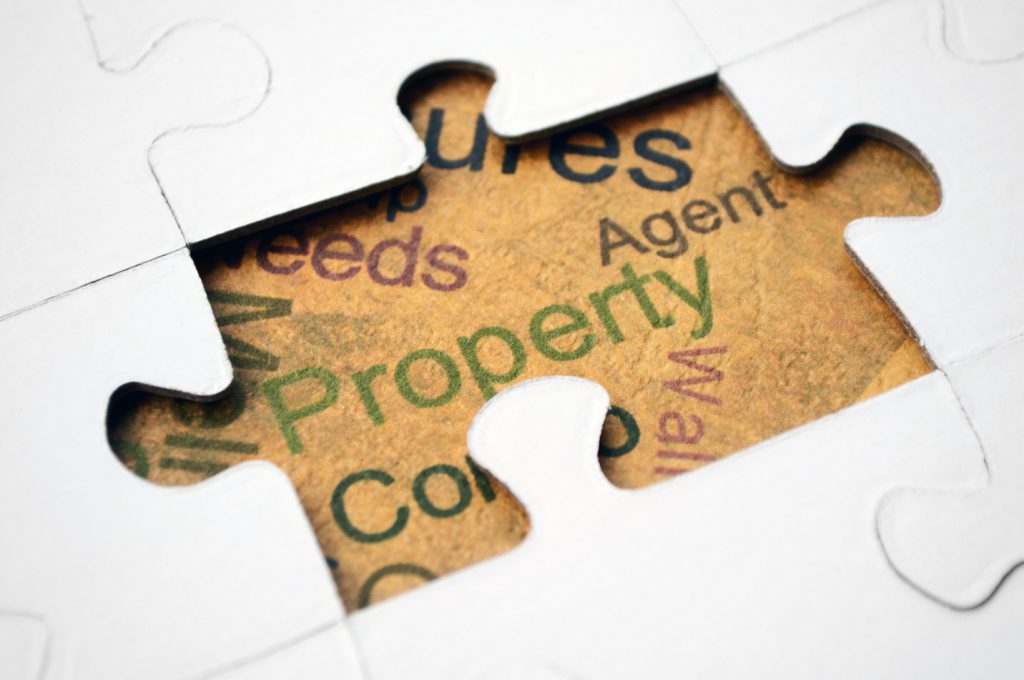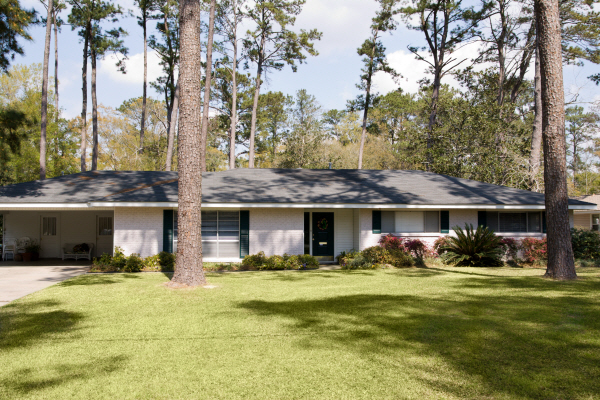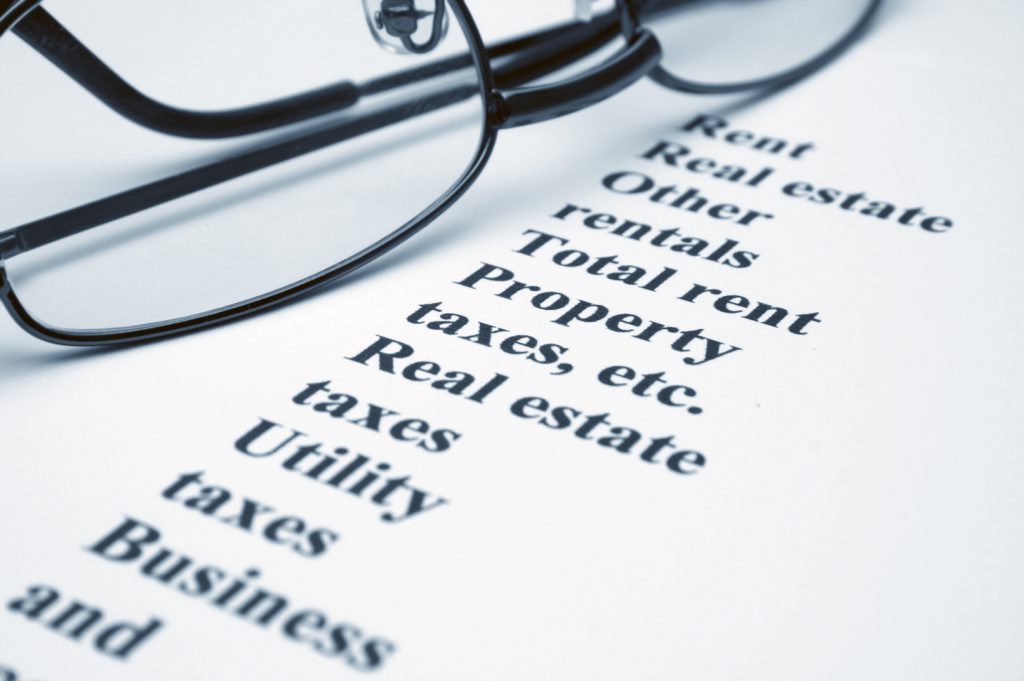Tag Archives: rental properties
Top 20 Questions to Ask Before Hiring a Property Manager

It takes a talented and unique skill set to be a professional property manager. Not everyone is cut out for it, but this article will help you tell the amateurs from the pros.
Property management is a complicated, fast-paced business, but generally speaking, there are some of the traits I see in successful property managers
- Pleasant, but firm
- Communicative, but not aggressive
- Detailed oriented, but not in the weeds
- Organized, but not obsessive
- Calm, but not seemingly apathetic
- Truthful, but does not overshare
- Is always learning, but is not arrogant
- and lastly, is passionate about real estate investing
Obviously, there’s more to being a successful manager, but I’m going to stop there. You see, most of the managers I’ve met only possess half of these traits (at best), and as such, it causes the business to struggle.
I’m not saying that they need to be perfect (I’m sure not!), but there needs to be a pursuit for something bigger and something greater. Managers who push themselves professionally towards these traits are the ones that will be able to keep your rental property occupied, meticulously maintained, and your tenants happy.
A good property manager is worth his or her weight in gold.
Top 20 Questions to Ask a Property Manager

Recently, the folks at Active Renter put together an in-depth guide to interviewing a property manager before you hire them. While I think 74 questions is a bit much (okay, way too much), the premise is solid.
With their permission, I’ve picked my top 20 questions to ask a property manager – which would still take 30 minutes or more to ask. In my opinion, these are the most important questions to ask a property manager that you are thinking about hiring.
1) What are the various services that you offer to your clients?
You want to make sure that you find a property management company that can market, lease, manage, and sell your property. It is also important to make sure that this company can provide top-notch maintenance, conduct inspections, and administer in-depth background checks.
2) How many rental units do you manage?
This will help you understand their size. Too few rental units and they are either inexperienced or have lost clients due to poor service. Too many rental units and you will get lost in the shuffle. Look for a property manager with 200 to 600 rental units. That’s when you’ve found your Goldilocks level of “just right.”
3) What experience does your company owner have in managing rentals?
Some company owners have never even managed a property. If the company owner has never managed a rental, what is the chance that he or she runs a company that can effectively help you with your investment property?
4) How do you determine rent amount?
A property manager should be able to complete a comparable market analysis of all the other available listings near your property. They should use properties that just went off the market and properties that are currently on the market to determine the highest possible rent. They should also have the expertise and experience needed to factor in the unique aspects of your rental property, like a pool or a new kitchen.
5) Are you currently an active real estate investor in your market?
The company’s leadership should be investing in the real estate market themselves. Period. If they don’t invest in your market then they lack the understanding they need to help you excel.
6) Under what conditions can I cancel my management contract?
Never get locked into a contract you can’t escape. Some companies will try to hold you captive with a contract and others will keep your business with great service. If a company is offering you an inescapable contract, it’s time to look elsewhere.
7) What are the management fees and/or pricing options when the property is being rented?
This question will help you understand your average monthly fee, if any. Some companies will offer a flat rate and others will offer a rate based on the rent amount. Others will offer 3 levels of pricing, which includes a lease only plan, standard plan, and a premium plan.
Again, you’re best off looking for a percentage of collected rents. This motivates your property manager to fill vacancies because they don’t get paid if you don’t have a tenant. It also motivates them to fight for higher rent amounts because this helps their bottom line too. Flat rate companies will get the same pay no matter what, so why would they be motivated to get you a higher rent?
8) Are their fees when the property has no tenants?
This is a very important question to ask for two reasons. One, many companies will offer a “flat rate,” which sounds great until your property is empty…and they still continue to charge you. If a company is taking money with the property empty, how motivated do you think they are to fill the vacancy?
9) What miscellaneous fees could I be charged for the management of my property?
Again, some companies will try to get you to sign because they offer a low rate. As the saying goes, if it is too good to be true, it probably is. Once you’ve signed, a company that seemed inexpensive will now charge you lots of extra fees. Remember, a property management company has to make money, so if they aren’t making money from the low monthly fee they will find another way to do it.
10) Do I have to sell my property with you if I want to list it?
Some property managers will ask you to sign a contract that forces you to sell the property with them. Don’t fall for this. A quality brokerage would never require this- but rather they would be available if you wanted to use their brokerage services.
11) Do you offer direct deposit for your owners?
Unless you’re living in Back to the Future and you’ve traveled to the 1800’s, your property manager should be able to deposit your check in your account. This saves you time and effort, which is the whole reason you hired them.
12) How do you collect rent from tenants?
Asking tenants to bring checks to an office is a lot like wearing acid washed jeans, it might have been okay in the 80’s, but the times have changed. If your property manager isn’t having your tenants pay online that is a red flag for two reasons. One, it slows down the speed at which you can get paid. Two, it makes it easier for tenants to miss paying the rent. If payment is online, tenants can automate their payment and these two problems are avoided.
13) Do you conduct property inspections and, if you do, what charge is associated with them?
Your property is at risk if your property manager doesn’t conduct inspections. This should require a small fee and it will be one of the best investments you can make. It ensures you catch problems before they spiral out of control.
14) Do you offer eviction warranty (also called a “screening guarantee”?
Some companies, such as ourselves, will offer eviction warranty. It is only a small fee, but it will give you major coverage should you need to evict a tenant.
15) What steps do you take to market properties?
Your property manager should be advertising properties through a variety of channels. If they are still just placing newspaper ads and hoping for the best then you should steer clear.
16) How long are your properties typically vacant?
The average vacancy time after a property is ready should be about 2-4 weeks. Any longer than this suggests the property manager is struggling to find tenants, any shorter than this suggests that your asking rent amount is too low and you might be leaving money on the table. Either of these scenarios is bad for you and your rental property.
17) What are your income and screening requirements for applicants?
If they don’t set a standard then how can they be sure this tenant will make rent? It should go without saying that a tenant needs to have enough income to pay the rent.
18) What control do I have over the tenant lease agreement?
Your property manager should give you some input into the lease agreement if there are one or two issues that are important to you. However, if you are putting in lots of additions, you should have just written it yourself. Make sure your prospective property manager is confident in the leases that they have written for tenants by asking this question.
19) Do you mark-up maintenance and repairs?
You need to make sure that a prospective property management company doesn’t make a profit any time they do maintenance. If they are willing to charge you for maintenance then your profits could greatly diminish.
20) How often will I get updates on my portfolio?
Just like payment statements, you should be able to get updates on your portfolio as often as you need them. Your properties are your business and to not offer updates as often as you want would be the equivalent of telling your property manager that they can’t check their email for a week. It is a situation that would guarantee failure.
Credit to Lucas Hall
Lucas is the Chief Landlordologist at Cozy. He has been a successful landlord for over 10 years, with dozens of happy tenants and a profitable income property portfolio.

nobody does it better
A Referral from you is the highest compliment I can receive
5 Considerations Before Buying a Rental Property
The rental market has seen a boom and decline in recent years. In the US, home prices peaked in 2007/08 and then plummeted to suffocating levels – causing foreclosures and abandonment nationwide.
In the UK, the rise of buy-to-let mortgage programs have allowed individuals to buy homes for the sole purpose of renting them out.
For better or worse, this caused a surge of new landlords in the US and the UK. According to the Wall Street Journal, the percentage of cash buyers (largely investors) make up about 32% of property sales in the US, which is higher than the average from 2000 to 2010.
If Paul Revere were alive today, he would proclaim “The landlords are coming!“
Buying a property for the purpose of renting it out can be a fantastic source of monthly income and a strong return on investment in the future. However, before you sign your financial life away, there are a few things you need to consider first:
1. Crunch the Numbers

Before you start looking at houses it’s a good idea to sit down and calculate the amount you can afford to spend on a rental property.
- Financing: If you’re not paying with cash, do some research by talking to a mortgage broker/bank to find out how much money you could borrow. You’ll also need to find out how much of a deposit you would be required to put down. It’s also a good idea to work out how much return on investment or rental yield you can realistically expect in the current market.
- Transaction Fees: Factor in additional costs such as tax, legal fees, stamp duty, etc., as they will vary between different states and even countries. If you are an international investor, the website Global Property Guide is really useful in for researching real estate data in other countries.
- Management Fees: How you would manage the property once you own it? Some landlords choose to manage the property themselves to save money, but this can cost a lot of time. Other landlords choose to pay a property management company to handle the property – everything from finding the tenants to arranging repairs once the tenants are in the property. Either way, these costs need to be considered in your budget.
2. Choose a Desirable Location

Once you have an idea of how much you are able to invest into a property, it’s time to choose the right area to invest in.
- Attractive Neighborhood: Here’s the secret: Invest in a rental property that is located in an area that people actually want to live in (it’s really that simple). It may seem like a good idea to buy a cheaper property but if it is in a run-down, neglected neighborhood then you’ll struggle to find decent tenants. I always try to buy the “worst house on the block” because I know it will give me the greatest amount of appreciation when I fix it up.
- Transportation and Local Amenities: You should consider how close the property is to quality transport routes, good schools, and amenities like shopping malls and supermarkets. If you’re planning on renting to students you’ll need to think about how accessible the property is for the college or university.
3. Choose your Target Tenant
As mentioned above, it’s important to consider who you’re likely to rent to, as different types of tenants will have different needs.
- Students: If you’re renting to students they’ll be looking for a clean, comfortable property – nothing too fancy or high maintenance. Students usually don’t have much furniture (or money) so they tend to look for fully furnished accommodations that they can move straight into. In a previous article we discuss the Top 5 Amenities When Renting to Students.
- Single Families: Renting to a family is different. They’re more likely look for an unfurnished property that is neutrally decorated; a blank canvas that they can make their own mark on. If you allow tenants to paint walls or hang pictures etc they’ll be able to make the house feel like home and are more likely to stay there for longer, which means more rent for you. We also discuss some great tips on maximizing your rental income through renovation and decoration when buying property for the purpose of renting it out.
4. Select the Property based on Return on Investment

Once you’ve chosen an area and considered the type of tenant you’d like to attract it’s time to find a house that meets your requirements.
- Make the Best “Business” Decision: Unless you plan to live in the property one day, you should look at every property from a business/investment perspective. If you make a purchase based on a “feeeeeling”, you will end up broke. Run the sales comps with an Agent, and check craigslist for similar rental properties to figure out the rental potential.
- Use an Agent: I will often use Redfin or Zillow or New Star Realty to view properties in my area, but I still prefer to use a real estate agent to close the deal, because they have insights and experience that I don’t. If real estate investing is going your full-time job, then you’ll want to get your own license to save on agent fees. In the US, the fee for a real estate agent is usually 3% of the purchase price, and paid for by the seller. The buyer will have other fees, but an agent fee is not one of them.
- Negotiate a Deal: When you find a property that you like and you’re ready to make an offer, it’s a good idea to try and haggle on the price. If the property needs any extensive cosmetic or building repairs, then you may be able to use this as a negotiating tool to nudge the price down a little.
- Using all Cash: You’ll have more leverage if you can pay with cash because your offer will appeal to a seller who is looking for a quick sale. Often, the seller will discount the price if you can close the deal within a week or two.
- Using Financing: If you’re using someone else’s money, you should shop around for the best mortgage rates. Don’t just take the first offer you get from local bank because there are hundreds of different lenders, each with their own incentives. A mortgage broker will have access to multiple programs and will help you compare your options.
5. Be Prepared for the Worst
The property market can fluctuate greatly at times so it can be difficult to know when (or if) you’ll see a good return on your investment.
- Vacancy: Even in the most popular areas, properties can sometimes sit empty for several months. For example, the town of Vail, Colorado is home to some of the best skiing in the United States, however even the most luxurious rental properties are vacant for approximately 100 days a year in Vail. As a general rule of thumb, you should plan for your property to be empty for two months of the year, therefore providing you with a good buffer of cash.
- Late Rent Payments: Renting will always come with risks. The majority of tenants pay their rent on time each month. But there is always the risk that your tenants will fall on hard times and fail to meet their rental obligations. There are multiple types of landlord insurance that can cover missing rent, if your tenant fails to fulfill the lease agreement. Alternately, if you create an “Emergency Fund” of 2-3 months worth of expenses, you’ll be able to absorb the risk of non-payment if it occurs.
- Use a Debt Collection Agency: If a tenant fails to pay rent, they abandon the property, or you have to evict them, you will probably need help from a debt collection agency to recover your losses.
Credit to Sergio Bonaducci

newstarrealty.com
5 Ways Landlords can Maximize Profit from Rentals

Recent developments in the real estate industry are proving to be a mixed bag for landlords.
Vacancy rates are increasing for the first time since 2009 as the number of empty properties grows. Although they only rose by 0.1 percent in the last quarter, it’s concerning because empty units are one of the largest drains on profit that landlords face.
The good news is that increased supply isn’t putting a damper on rent amounts, which continue to rise as newly built homes and apartments tend to command a premium.
But savvy landlords know that they need to act now to future-proof their profits against the potential for losses from higher vacancy and home-ownership rates as the economy recovers.
Here are five ways that landlords can maximize profit from their rental properties:
1. Increase the Rent, but be Competitive
If you price your unit too low, you’ll fill it quickly, but might miss out on thousands of dollars in rent. You need to ensure that you’re correctly calculating the cost vs. revenue on each property.
Location is the greatest influencer of price, but an excellent condition and updated decor also helps to maximize rental income.
In summary, start advertising 4-6 weeks out from lease end, and try to get the most you can for the rental. Check Craigslist and Zillow and New Star Realty for current market rent rates.
2. Work Smarter, Not Harder
Technology offers modern landlords opportunities to significantly reduce their property management overhead. One particularly useful platform is Cozy, which provides simple end-to-end rental management software for landlords and tenants.
Cozy reduces the amount of time you need to spend collecting applications, screening tenants, and collecting rent. Not only are tools like Cozy a better overall experience, it allows both the landlord and tenant to “set it, and forget it,” thereby making rent collection automatic.
You could also try uploading videos of your properties to YouTube or Vimeo and having your application link to those videos, year after year.

3. Take Advantage of All Tax Breaks
This is a no-brainer, as writing down every possible allowable expense reduces taxable profits and therefore your tax bill.
Landlords can claim all the maintenance and repair costs on their properties. Keeping your properties in excellent condition makes it much easier to find tenants and allows you to charge higher rents, too, making this a win-win situation.
You can also deduct mortgage interest as well as the costs you incurred buying your properties. You can’t deduct the latter all in one year, so you need to do it through annual depreciation, as property is classed as an asset like vehicles or machinery. Unlike other assets though, provided you did your homework when buying, your rental units should increase in value over time.
Other deductible expenses include insurance, business-related travel, contractors and the expenses of a home office, if you have one.
4. Target Your Ideal Tenant
Getting the perfect tenants for your property is a triple financial bonus; you’ll be able to set a higher rent and if they’re suitable they are less likely to leave, saving you costs associated with vacant units and tenant turnover.
Find out what your ideal tenant is likely to want, in terms of fixtures and fittings and décor, and give it to them.
This sounds simple but just make sure you do you research first: if your best tenant is a professional twenty-something then they’re likely to want different facilities and interior design than retirees or a family with young children.
Location is key too. Someone renting a luxury apartment in Los Angeles is quite likely to have different needs, expectations and tastes from someone renting a modest family home in Philadelphia.
Be realistic about how attractive your apartment is to potential tenants. Unless the neighborhood is rapidly improving, a rental property in a low-income area is unlikely to attract affluent tenants, no matter how well it’s decorated.
5. Install Solar Panels, Rent Storage Space, or Sell Ads
Take advantage of “green” tax incentives and rebates by installing solar panels on residential properties while they’re still available. Although at first glance it might seem that these benefit homeowners more than landlords, this is not necessarily the case. Once you’ve installed the solar panels, you can sell back excess energy to the grid, opening up another income stream from your property.
Your tenants will benefit from lower energy bills and as prices are predicted to keep rising, this is an advantage that could become even more attractive over time. This can be factored into the rent, allowing you to make a bigger rental income even as your tenant pays less overall.
If you have extra storage space, you could increase your profits by renting it to non-tenants. Further, there may be local businesses willing to buy advertising space. A simple banner hung on an exterior wall or side fence might bring in hundreds of dollars a month.
Credit to Guest Author – Ella Jameson
After graduating from university with a degree in English Literature, Ella worked as an editor and copywriter for several years before becoming a journalist.

Everything We touch turns to SOLD
Experienced in saving Your Money
A CUT ABOVE THE REST
Top 10 Pain Points for Landlords and How to Fix Them

Being a landlord can be incredibly profitable, but also very difficult at times.
I don’t know about you, but my properties aren’t exactly on Easy Street.
Over the last 10 years, I’ve experienced many of the issues that plague owners, and cast fear into the hearts of wanna-be landlords.
Through endless reading, trial and error, and tenant feedback, I’ve learned that almost every rental problem has a solution.
Based on my experience, here are the top 10 pain points that most landlords will eventually experience, along with ways to fix or prevent them.
1. Loss of Rent/Income
- Vacancy
- Rent Default (Tenant Stops Paying)
- Tenant Hold-over (Tenant Won’t Leave and Won’t Pay Rent)
Solutions:
- To reduce vacancy, start listing your units for rent 60 days prior to the end of the current lease.
- Screen your tenants better – make sure you don’t let a deadbeat or a scammer into your property.
- Terminate the lease immediately for nonpayment – with proper notice for your state, of course.
- Learn about your local eviction process, and be ready to file the paperwork immediately after lease termination.
2. Eviction
- Court Costs of Eviction
- Strict Legal Rules for Eviction
- Tenant Retaliation by Damaging the Property
Solutions:
- Require a large security deposit (1-2 month’s worth of rent, depending on what is allowed in your state) at the beginning of the lease to alleviate potential expenses of court costs and damages.
- Learn about your local eviction process, and be ready to file the paperwork immediately after lease termination.
- Include a clause in your lease that mandates court costs and attorney’s fees be paid by the prevailing party.
3. Stress of Property Management
- Cleanliness of Tenants
- Unintentional/Intentional Destruction of Property
- Illegal Drug Use
- Lawsuits
- Chasing Down/Collecting Rent
- Tenants Lying to You
- Noise and Nuisance Complaints
- Dealing with Disgruntled Neighbors of Your Rental
- Police/Domestic Violence Issues
- Ensuring Tenant Satisfaction
- Ensuring an Unbiased and Fair Screening Process
Solutions:
- Find a rock-solid lease and stick to it.
- Stop by or drive by the property at least once a month.
- List the tenant’s cleaning responsibilities in the lease.
- Put everything in writing (or email).
- Ask the neighbors to call you first, whenever there is an issue.
- Don’t be afraid to call the police.
- Find a local landlord-tenant lawyer and build a friendship with him or her, before you actually need an attorney.
- Use an automated tool, such as Cozy, to accept applications, screen tenants, and collect rent online.

4. Stress on Personal Life/Relationships
- Spouse or Partner Worried About Finances
- Always Being On-call for Rental Issues
Solutions:
- Include your spouse or partner in the financial decisions and respect their opinion.
- Keep a three- to six-month emergency (or vacancy) fund for each property. Yes, it takes a while to build that up, but you’ll sleep better.
- Ask your tenants to report issues via email or text, which only takes a second to review. If it’s urgent, you can deal with it immediately.
5. Tenant Turnover
- Trying to Find a New Tenant
- Cleaning up After a Previous Tenant
- Feeling of Rejection When Prospective Renters Don’t Want to Rent Your Place
- Exhaustion from Showing a Unit Week After Week
- Handling, Storing and Disposing of Abandoned Personal Property
Solutions:
- When looking for new tenants start early, while the unit is still occupied.
- List your units for rent 60 days prior to the end of the current lease.
- Refresh your listing on Craigslist every three to five days.
- Don’t sweat the clean-up, just hire a maid service and deduct the cost from the deposit (excluding normal wear and tear).
- Schedule showings back-to-back, every 30 minutes, in a four-hour block on a Saturday. I call this “The Landlord’s Open House.”
6. Repairs
- Knowing When to Do It Yourself and When to Hire a Pro
- Finding and Evaluating Qualified Contractors
Solutions:
- Create a handy tool bucket that you can keep in your trunk.
- Your rentals will provide great opportunities to learn basic handyman skills, but don’t get in over your head. I’ve made small leaks much worse because I didn’t know what I was doing.
- Buy an all-purpose DIY book, and skim through it regularly. Keep it in your car, so you always have it nearby.
- Ask to observe every service professional that comes to your property. You’ll learn a lot through observation.
- Research contractors on Angie’s List, Handy (formerly Handybook), Yelp, and the Better Business Bureau.
7. Compliance with Laws
- Obtaining Business Licenses and/or Landlord Registration
- Understanding Landlord-Tenant State Laws
- Knowing Landlord vs. Tenant Rights
Solutions:
- Don’t try to circumvent the government. You may get away with it for a while, but eventually it will catch up to you.
- Learn your state’s rental laws.
- Join a local landlord association, rental housing association, or real estate investor association to network with other landlords.
- Attend landlord training in your city. Landlordology provides free guides and occasional online webinars. Join our newsletter to stay in the loop.
8. Adequate Insurance
- Insuring Each Property
- Insuring Against Rental Income Loss and Lawsuits
- Insuring Your Portfolio
Solutions:
- You might get a better rate if you insure all your properties with a single provider.
- Inform your provider that your properties are rentals, and not homeowner occupied (critical!).
- Sign up for “Fair Rental Income Protection” in your policy to cover the rent during a covered loss.
- Make sure you have proper coverage.
- Consider getting “umbrella” insurance to cover excess liability and risk not covered by the individual policies. An umbrella policy will insure your entire portfolio, not just your properties.
9. Leases
- Finding a State-compliant and Bullet-proof Lease
- Explaining Lease Clauses to Tenants
- Knowing Whether or Not Your Lease Will Hold up in Court
Solutions:
- Use a premium, state-specific lease that has been reviewed by lawyers. It’s worth the investment. Check our toolbox for suggestions.
- Don’t ever use a “free lease” that you find on the internet. It could cost you thousands in lawsuits.
- Review your state laws for any required or prohibited clauses.
- Review the entire lease with the applications before signing.
- Use online document signing tools, like SignNow, HelloSign, and Docusign, to digitally sign leases remotely.
10. Finances
- Keeping Track of Security Deposits
- Calculating Interest on Deposits
- Commingling Funds
Solutions:
- Keep the security deposit in a separate, interest-bearing bank account.
- Open a separate security deposit bank account for each property.
- Collect and give interest on the deposit money if you are required to by law. If the statutes don’t regulate interest, just give the tenant all the interest that is accrued.
BONUS: Taxes
- Keeping Track of Income and Expenses
- Calculating Depreciation
- Sending out 1099s to Contractors
- Deciding to DIY or hire a CPA
Solutions:
- Use an all-in-one property management software that lets you track income and expenses. If not, there are other great tools, like Freshbooks, Excel, and Quickbooks.
- Property Managers (not landlords) who pay a contractor more than $600 in a given year, must send out 1099s. Some tools like, Buildium and Appfolio can make this task easier.
- TurboTax can easily prepare and file the taxes for most small landlords. If you have multiple business entities, joint ownership, or tax shelters, then you should probably hire a CPA.
Credit to Lucas Hall
Lucas is the Chief Landlordologist at Cozy. He has been a successful landlord for over 10 years, with dozens of happy tenants and a profitable income property portfolio.







